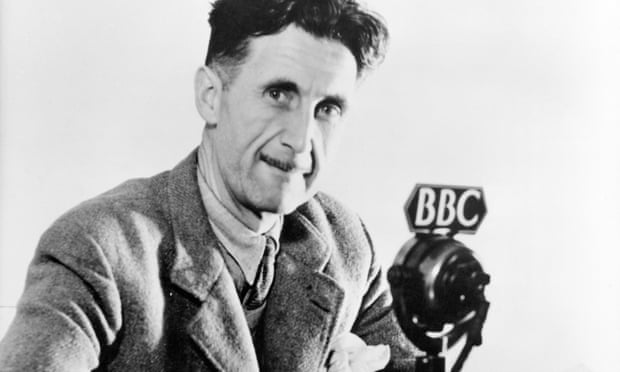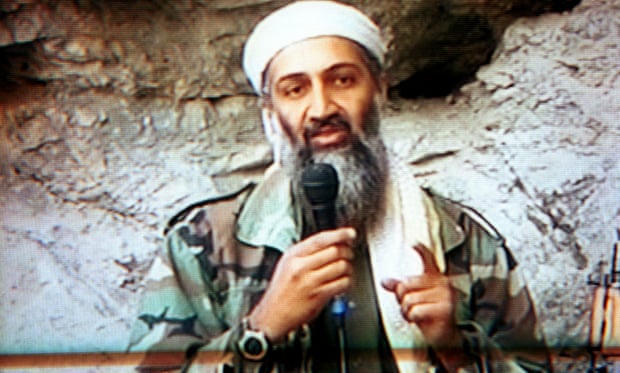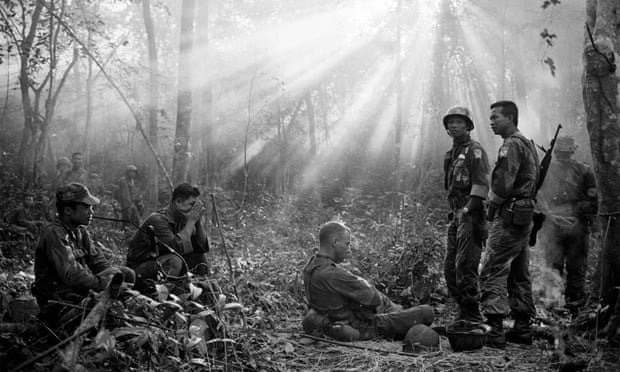This is where the conversation with Orwell might begin. In 1967, Merton published an essay on “War and the Crisis of Language”, in which he develops a distinctly Orwellian polemic against the corruption of writing itself by certain aspects of modernity. The speech of military strategists and of politicians is characterised by a narcissistic finality. There can be no real reply to the careful and reasonable calculation of the balance of mass killing in a nuclear war, because everything is so organised that you are persuaded not to notice what it is you are talking about. And when that happens, you cannot intelligently converse or argue: all there is is the definitive language imposed by those who have power. It is a natural extension of the language habitually used to describe the processes of other kinds of war. Merton relished the comment of an American commander in Vietnam: “In order to save the village, it became necessary to destroy it”, and memorably summed up the philosophy of many supporters of the Vietnam intervention:
“The Asian whose future we are about to decide is either a bad guy or a good guy. If he is a bad guy, he obviously has to be killed. If he is a good guy, he is on our side and he ought to be ready to die for freedom. We will provide an opportunity for him to do so: we will kill him to prevent him falling under the tyranny of a demonic enemy.”

In an essay on Camus, whom he, like Orwell, admired greatly, Merton says that the writer’s task “is not suddenly to burst out into the dazzle of utter unadulterated truth but laboriously to reshape an accurate and honest language that will permit communication … instead of multiplying a Babel of esoteric and technical tongues”. Against the language of power, which seeks to establish a perfect self-referentiality, the writer opposes a language of “laborious” honesty. Instead of public speech being the long echo of absolute and unchallengeable definitions supplied by authority – definitions that tell you once and for all how to understand the world’s phenomena – the good writer attempts to speak in a way that is open to the potential challenge of a reality she or he does not own and control. When the military commander speaks of destroying a village to save it, the writer’s job is to speak of the specific lives ended in agony. When the agents of Islamist terror call suicide bombers “martyrs”, the writer’s job is to direct attention to the baby, the Muslim grandmother, the Jewish aid worker, the young architect, the Christian nurse or taxi driver whose death has been triumphantly scooped up into the glory of the killer’s self-inflicted death. When, as it was a few months ago, the talk is of hordes and swarms of aliens invading our shores, the writer’s task is to focus on the corpse of a four-year-old boy on the shore; to the great credit of many in the British media, there were writers (and cartoonists and photographers, too) who rose to that task.

Orwell’s rules for good writing have become familiar: don’t use secondhand metaphors, don’t use long words where short ones will do, abbreviate, use the active not the passive, never use a foreign phrase when you can find an everyday alternative in English. They are rules designed to communicate something other than the fact that the speaker is powerful enough to say what he or she likes. Bad or confused metaphor (Orwell has some choice examples of which my favourite is “The Fascist octopus has sung its swan song”) presents us with something we can’t visualise; good metaphor makes us more aware, in unexpected ways, of what we see or sense. So bad metaphor is about concealing or ignoring; and language that sets out to conceal or ignore and make others ignore is language that wants to shrink the limits of the world to what can be dealt with in the speaker’s terms alone.
But there is something more to be said, which Orwell, a stout enemy of literary modernism, doesn’t quite want to say. In some earlier essays, he had argued that it wouldn’t be the end of the world if literature became less obviously sophisticated, if the range of cultural references in our writing had to be reduced in order to open it up to more participants. Without quite anticipating the more recent debates about whether there is a real difference between “high” and “low” culture, there is in his work a consistent strand of scepticism about anything that looks like complexity for its own sake, and a feeling that it ought to be possible to say things straightforwardly. And this is where he and Merton might part company. Merton was an enthusiastic modernist in this respect. A good deal of his poetry and some of his prose is written under the heavy influence of Joyce, and his letters to his old friend, the poet Robert Lax, use a bewildering macaronic style, bursting with puns and allusions and intricate wordplays. It is one of the ways in which he obeys his own injunction to be “laborious”. He can even say that, on top of the obligation to write “disciplined prose”, a writer has “the duty of first writing nonsense … to let loose what is hidden in our depths, to expand rather than to condense prematurely”.

Our current panics about causing “offence” are, at their best and most generous, an acknowledgement of how language can encode and enact power relations (my freedom of “offending” speech may be your humiliation, a confirmation of your exclusion from ordinary public discourse). But at its worst, it is a patronising and infantilising worry about protecting individuals from challenge; the inevitable end of that road is a far worse entrenching of unquestionable power, the power of a discourse that is never open to reply. Debates about international issues such as Israel and Palestine, or issues of social and personal morals – abortion, gender and sexuality, end-of-life questions – are regularly shadowed by anxiety, even panic, about what must not be said in public, and also by the sometimes startlingly coercive insistence on the “rational” and canonical status of one perspective only. On both sides of all such debates, there can be a deep unwillingness to have things said or shown that might profoundly challenge someone’s starting assumptions. If there is an answer to this curious contemporary neurosis, it is surely not to be found in the silencing of disagreement but rather in the education of speech: how is unwelcome truth to be told in ways that do not humiliate or disable? And the answer to that question is inseparable from learning to argue – from the actual practice of open exchange, in the most literal sense “civil” disagreement, the debate appropriate to citizens who have dignity and liberty to discuss their shared world and its organisation and who are able to learn what their words sound like in the difficult business of staying with such a debate as it unfolds.

Perhaps that’s as good a definition of good writing as we’re going to find. Destructive politics is inevitably bound up with forgetfulness of our humanity, in one way or another – the organised inhumanity of tyranny, the messianic aspirations of communism, the passion for control on the part of managerial modernity, the naked and brutal murderousness of terrorism. But Merton explicitly, and Orwell implicitly, remind us that this is not just about bad governance or oppression. If we talk and write badly, dishonestly, unanswerably, what we are actually doing is getting ready for war. The habits of mind that make war inevitable are the habits of bad language – that is to say, the habits that grow from uncritical attitudes to power and privilege: contempt towards the powerless, towards minorities, towards the stranger, the longing for an end to human complexity and difference. Orwell explicitly and (perhaps) Merton implicitly are trying to identify the all-important possibility that we may passionately quarrel, even that we may fight to defend ourselves against political evil in one way or another, without simply buying into various kinds of totalitarianism, overt or covert. Orwell has an almost medieval sense of what is involved in battling to the death to defend yourself against an enemy for whom you retain a degree of human respect, in that you do not seek to dehumanise them, to put them once and for all outside the boundaries of human discourse and exchange.
However we pursue that fight (not exactly an academic question today; and Orwell and Merton would disagree sharply here, I think, given Merton’s near pacifism), the central moral question is whether we are going to use the language of tautology and self-justification – one that gives us alone the right to be called reasonable and human – or whether we labour to discover other ways of speaking and imagining. If we settle for the former, we are already planning the next round of violence. The latter is hard and counterintuitive because it does not promise what most of us are secretly longing for: a simple end to conflict and complication. But it is the very opposite of resignation, because it summons the writer to work, to the constant creation and re-creation of an authentically shared culture – the pattern of free and civil exchange that is neither bland nor violent. The “small blue capsule of indignation” – in Merton’s words – has to be punctured again and again. And if he is right, that means the writer needs rather more than just ideas; she or he needs something of the contemplative liberty to sift out the motivation towards bad writing that comes from the terrors and ambitions of the ego, and to find the liberty to allow words, both fresh and puzzling, to arrive. It’s easy to imagine Orwell’s raised eyebrows at the thought of his contemplative vocation, but if this brief attempt at staging an encounter between these two passionate and contentious writers has come anywhere near the truth, that’s what might have to be said about the calling not only of Orwell but of any writer worth reading.
• This is an edited extract of the 2015 Orwell lecture: theorwellprize.co.uk/.

